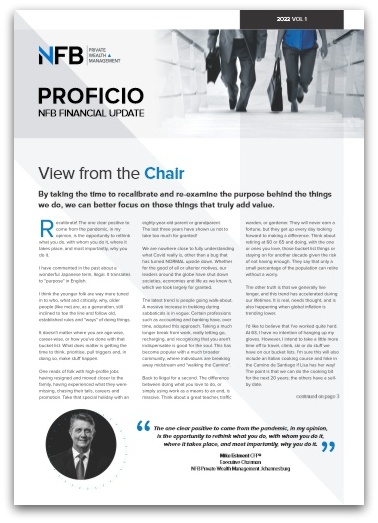The importance of having a valid and updated will
Ensuring that your will is valid and updated will significantly reduce the emotional toll and stress that your beneficiaries experience in the event of your untimely passing.


Your last will and testament is one of the most important contracts that you will be a party to. It sets out your final wishes regarding the distribution of your possessions, and the consequence of passing away without a valid will is that your estate falls into intestate succession. As a result, your estate may not be divided up among those you had hoped or intended for it to be. Having a valid will ensures that the distribution process is carried out timeously and efficiently, and in accordance with your wishes. Furthermore, having a valid will assists in avoiding unnecessary disputes between beneficiaries and reduces the time taken for said beneficiaries to receive their inheritance.
Not having a valid will in place increases the complexity of dealing with any offshore asset distribution as international laws and foreign jurisdictions must also be considered in these instances. Without a valid will, guardians of minor children can't be appointed in the event of the simultaneous death of both parents. In this instance, as a testamentary trust can't be set up for the related minors, all assets that devolve upon the minor children will be administered by the Guardian's Fund, managed by the Master of the High Court. Over and above the practical benefits, having a valid will in place assists in minimising the emotional burden carried by heirs when dealing with the loss of a loved one.
The Wills Act 7 of 1953 outlines the legal formalities that must be met for a will to be valid. These include, but are not limited to:
1. Legal age requirement whereby the person to whom the will relates must be at least sixteen years of age.
2. Legal competency and mental capacity of the person to whom the will relates must exist.
3. The will must have been entered into voluntarily and not contracted under duress.
4. The will must be signed, dated, and witnessed by two disinterested/non-benefiting parties.
5. The will must be reduced to writing in a manner that is clear and readable.
While the above-mentioned criteria appear straightforward and easily achievable, due attention must be paid to the clarity and reliability of the contents of the will as inconsistencies may give rise to issues irrespective of the will's validity. The will should be updated regularly and in line with significant life events that may trigger a change in your estate planning, such as the birth of a child, death of a spouse or beneficiary, marriage, or divorce.
Statistics show that the number of qualifying South Africans with a valid will in place remains low at only 30-35%. Along with an increased administrative cost, the unnecessary complexity and time delay that accompanies intestate succession can easily be avoided by having a valid will in place. To ensure that all your estate planning requirements are sufficiently provided for, speak to your financial advisor now. It is always best to consult practice professionals that deal exclusively with wills administration.
At the core of our fiduciary service is an understanding of your need to provide for your family’s future through a meaningful legacy. Working closely with your private wealth manager, we plan how best to manage and preserve your wealth for generations to come.
| Contact our NFB Private Wealth Managers and fiduciary specialists in Gauteng |
|||
Contact our NFB Private Wealth Managers and fiduciary partners IE&T in East London |
|||
| Learn more about our fiduciary partners in East London, Independent Executor & Trust by visiting their website. |  |
As part of our ongoing partnership with ASISA and our investment in their independent financial advisor (IFA) internship programme, Nasreen Dolley, wrote this article under the guidance and supervision of Marco van Zyl CFP®, director and private wealth manager at NFB Private Wealth Management Gqeberha.
 |
This article features in the 2022 issue 1 edition of the Proficio, NFB's bi-monthly financial update newsletter. Download the complete newsletter here. |













